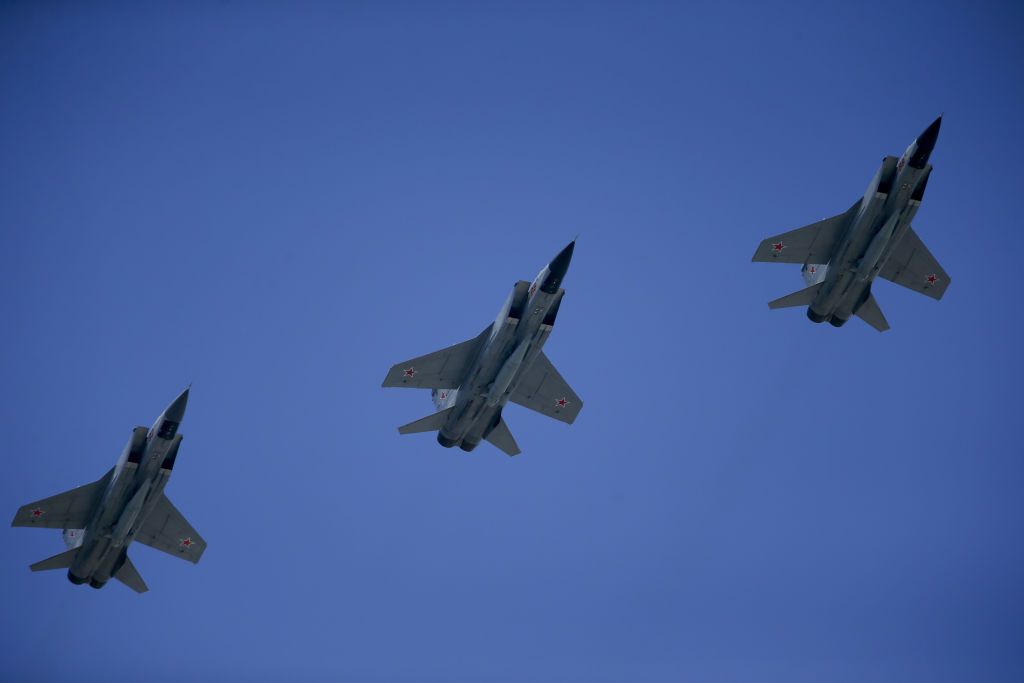Russian forces launched a massive aerial attack across Ukraine overnight on April 11, targeting critical infrastructure in multiple regions. The attacks damaged energy facilities in Kharkiv, Kyiv, Zaporizhzhia, and Lviv oblasts. Engineers are working to restore the damaged sites, and the Air Force issued an aerial alert for most of the country, including the far-western oblasts. Russia utilized drones, cruise missiles from Tu-95 bombers, and Kinzhal hypersonic missiles in the assault. Explosions were reported in Kharkiv, with over 200,000 subscribers left without electricity and the metro used as a shelter. While no additional casualties were reported, Russia has intensified attacks on Kharkiv, draining Ukraine’s air defense and civilian morale.
Russian forces also targeted Kyiv and western oblasts with drone strikes, causing a fire at a critical infrastructure facility in Kyiv Oblast. Emergency services were deployed to the scene, and no casualties were reported. Russian strikes were reported in Lviv and Ivano-Frankivsk oblasts, with missile and drone attacks damaging energy facilities in Zaporizhzhia Oblast. With an increase in frequency and intensity, these attacks highlight Ukraine’s critical shortage of air defense systems due to delays in U.S. military aid, providing Russian forces with the opportunity to launch renewed assaults on energy infrastructure. Poland scrambled military aircraft to defend its airspace during the mass attack, emphasizing the regional impact of the ongoing conflict.
The Ukrainian Parliament started considering an updated mobilization bill in the second reading on April 10, as Germany delivered artillery shells, drones, and armored vehicles to Ukraine. Russian attacks against Kharkiv and Odesa oblasts resulted in casualties, including two children, and injuries. The Ukrainian military denied reports of Russian forces advancing on the capital city, Kyiv. The ongoing conflict has drawn international attention and support, with countries like Germany providing essential military equipment to aid Ukraine in its defense against Russian aggression. The situation in Ukraine remains volatile, with civilian casualties and infrastructure damage continuing to escalate.
The conflict in Ukraine has seen a recent escalation, with Russian forces launching aerial attacks targeting critical infrastructure in multiple regions. The attacks have resulted in damage to energy facilities, leaving hundreds of thousands without electricity and forcing residents to seek shelter in the metro. The use of drones, cruise missiles, and hypersonic missiles highlights the advanced weaponry being deployed in the conflict. The lack of adequate air defense systems has allowed Russian forces to intensify their assaults on energy infrastructure, further complicating the situation on the ground.
As the conflict continues, the international community has shown support for Ukraine, with countries like Poland scrambling military aircraft to defend their airspace during the attacks. Germany’s delivery of military equipment underscores the importance of international aid in bolstering Ukraine’s defense capabilities. The Ukrainian Parliament’s consideration of an updated mobilization bill reflects the ongoing efforts to strengthen the country’s defense against Russian aggression. Despite the challenges faced by Ukraine, the resilience of its people and the support of the international community remain critical in the fight for independence and sovereignty.
The ongoing conflict in Ukraine serves as a reminder of the devastating impact of war on civilian populations and critical infrastructure. The attacks on energy facilities and residential areas underscore the urgent need for a peaceful resolution to the conflict. As the situation continues to evolve, it is essential for the international community to support independent journalism in Ukraine to ensure accurate reporting of events on the ground. By standing together in this fight, we can help bring an end to the violence and support the people of Ukraine in their struggle for freedom and democracy.















